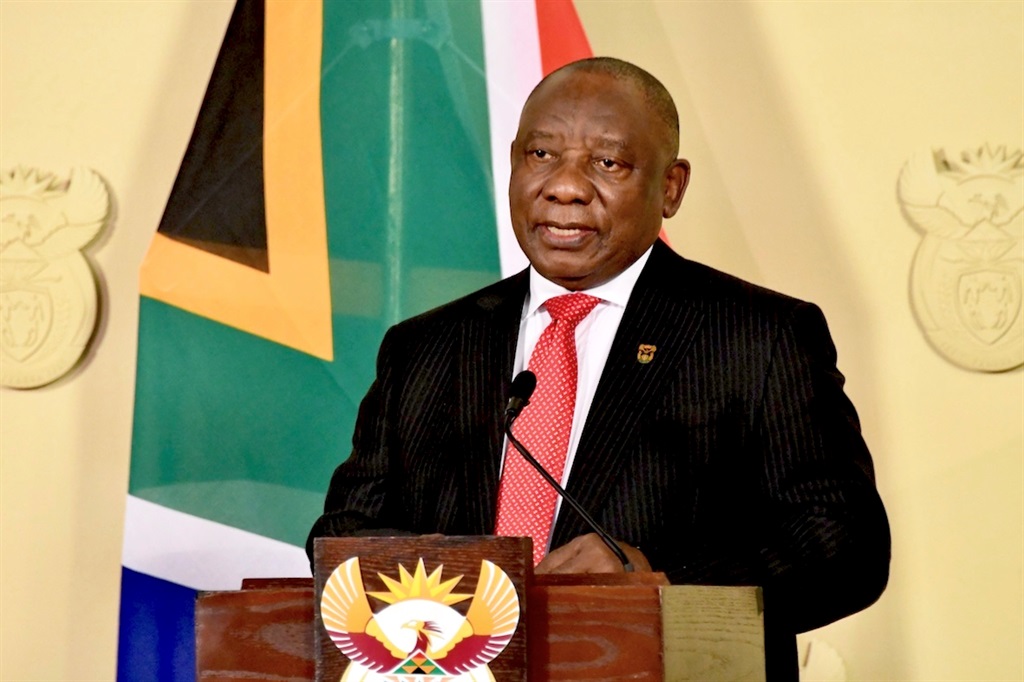
- State-owned entities (SOEs) have been bedeviled by allegations of corruption as heard by the State Capture Inquiry.
- President Cyril Ramaphosa says public ownership is necessary in critical sectors of the economy.
- The recent reform in reforms some SOEs will ensure that that strategic infrastructure remains in state hands.
President Cyril Ramaphosa says the country's state-owned enterprises (SOEs) which have been recipients of regular bailouts, are central to economic growth and the government does not own them "simply for the sake of it".
In his weekly letter to the nation on Monday, Ramaphosa said SOEs had mostly been in the public eye because of their association with state capture, financial mismanagement and inefficiency, and had struggled to meet their mandates.
"It is important to remember that the state does not own these companies simply for the sake of it, or because this is what the democratic government inherited from the apartheid state.
"Rather, our approach to state ownership is informed by the need for the effective functioning of key network industries, such as energy and ports, and by the need to ensure that the basic needs of all South Africans, particularly the poor, can be met."
Companies such as Eskom, Denel, SA Airways (SAA), the Passenger Rail Agency of South Africa and Transnet have been hobbled by claims of corruption and maladministration that severely impacted their operations and ability to fulfil their mandate.
The claims of grand scale corruption in some of the companies have dominated the evidence heard by the Zondo Commission since its inception in 2018.
Despite their shortcomings, Ramaphosa stressed that state-owned enterprises should be "at the forefront of economic and social transformation" as they are responsible for providing the infrastructure and the services on which the economy depends.
"We firmly believe that public ownership is necessary in critical sectors of the economy and that the country needs robust SOEs that are able to drive economic growth and transformation."
Government is in the process reforming some SOEs, in a bid to improve their efficiency and reduce their dependance on state coffers. Some of the recent reform include a plan to break up Eskom into three business units, generation, transmission and distribution and a recent announcement of a plan to establishment of the National Ports Authority as an independent subsidiary of Transnet.
"These reforms are not intended to weaken the public sector or to reduce its role, but to make it a more dynamic and effective part of our economy," said Ramaphosa.
He added that the reforms would encourage greater private investment in the country's economic infrastructure and not diminish value, as some people have assumed.
"These reforms will ensure that while strategic infrastructure remains firmly in state hands, our SOEs will become more efficient and the industries they support will become more competitive....are important to ensure that SOEs implement their broader developmental mandates to support all citizens and the economy.
The new Transnet National Ports Authority which was announced last week will become an independent subsidiary of the freight logistics parastatal, and make its own investment decisions.
SAA meanwhile is currently in the midst of a due diligence process with a private equity partner, the Takatso consortium, who could end up owning 51% of the airline and its subsidiaries.
